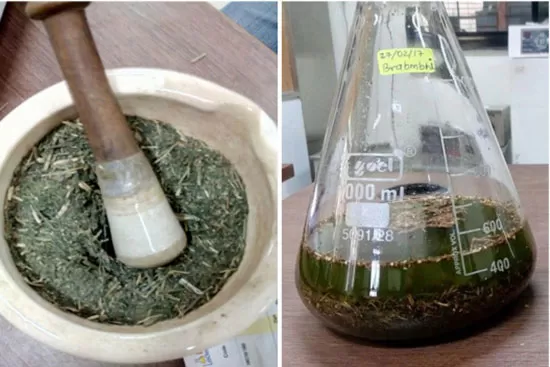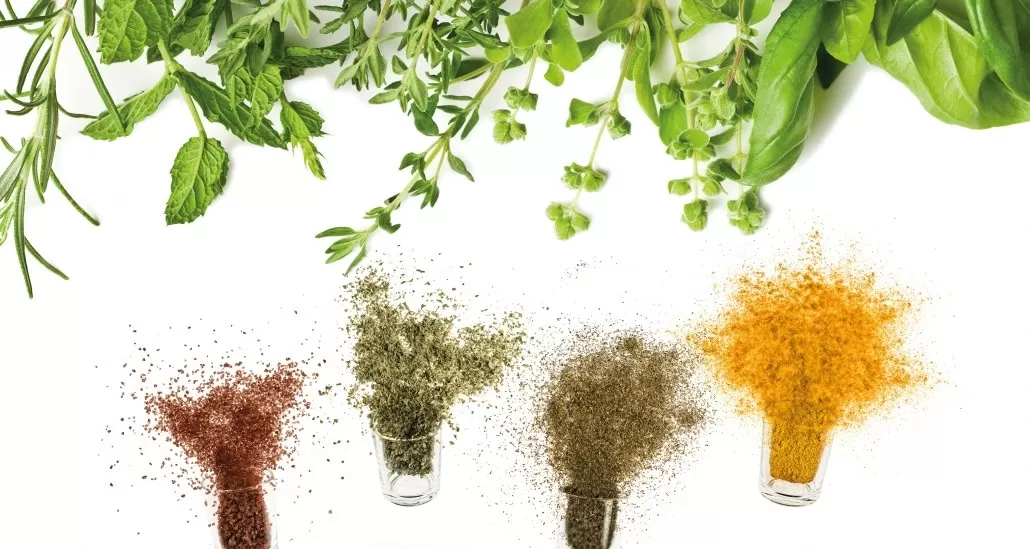- 0086-571-85302990
- sales@greenskybio.com
The Untapped Potential of Plant Extracts for Diabetes Management
2024-08-09
1. Introduction
Diabetes mellitus is a chronic metabolic disorder that has reached epidemic proportions globally. It is characterized by elevated blood glucose levels, which can lead to a wide range of complications affecting various organs such as the heart, kidneys, eyes, and nerves. Current treatment modalities mainly focus on lifestyle modifications, oral hypoglycemic agents, and insulin therapy. However, these treatments may have limitations, including side effects and incomplete glycemic control in some patients. In recent years, there has been a growing interest in exploring the potential of plant extracts for diabetes management. Plant extracts offer a rich source of bioactive compounds with diverse pharmacological properties that could provide new strategies for the prevention and treatment of diabetes.
2. Antioxidant Properties of Plant Extracts in Diabetes
2.1 Oxidative Stress in Diabetes
Diabetes is associated with increased oxidative stress. High blood glucose levels can lead to the overproduction of reactive oxygen species (ROS) through various mechanisms such as glycolysis, mitochondrial dysfunction, and activation of the polyol pathway. ROS can cause damage to cellular components, including lipids, proteins, and DNA, which in turn contribute to the development and progression of diabetes and its complications.2.2 Role of Antioxidant Plant Extracts
Many plant extracts possess antioxidant properties. For example, extracts from berries such as blueberries and strawberries are rich in polyphenols, which are potent antioxidants. These polyphenols can scavenge ROS, reducing oxidative stress in cells. Another example is Green Tea Extract, which contains catechins that have antioxidant activities. By neutralizing ROS, plant extracts can help protect pancreatic beta - cells from damage. Pancreatic beta - cells are responsible for insulin production, and their protection is crucial for maintaining normal glucose homeostasis. In addition, antioxidant plant extracts can also improve endothelial function, which is often impaired in diabetes, reducing the risk of cardiovascular complications.
3. Anti - Inflammatory Effects of Plant Extracts
3.1 Inflammation in Diabetes
Chronic low - grade inflammation is a hallmark of diabetes. Inflammatory cytokines such as interleukin - 6 (IL - 6), tumor necrosis factor - alpha (TNF - α), and C - reactive protein (CRP) are elevated in diabetic patients. This inflammation is involved in insulin resistance, beta - cell dysfunction, and the development of diabetic complications.3.2 Anti - Inflammatory Plant Extracts
Several plant extracts have been shown to have anti - inflammatory effects. Turmeric extract, which contains Curcumin, has been extensively studied for its anti - inflammatory properties. Curcumin can inhibit the activation of nuclear factor - kappa B (NF - κB), a key transcription factor involved in the regulation of inflammatory genes. This leads to a reduction in the production of inflammatory cytokines. Ginger Extract is another example. It contains gingerols and shogaols, which can also modulate the inflammatory response. By reducing inflammation, these plant extracts can potentially improve insulin sensitivity and beta - cell function, thereby helping in diabetes management.
4. Glucose - Regulating Capabilities of Plant Extracts
4.1 Mechanisms of Glucose Regulation
Plant extracts can regulate glucose levels through multiple mechanisms. Some plant extracts can enhance insulin secretion from pancreatic beta - cells. For example, fenugreek seed extract has been shown to stimulate insulin release. Others can improve insulin sensitivity in peripheral tissues such as muscle, liver, and adipose tissue. Cinnamon extract has been reported to increase insulin - mediated glucose uptake in cells, thereby reducing blood glucose levels. Additionally, some plant extracts can inhibit carbohydrate - digesting enzymes such as alpha - amylase and alpha - glucosidase in the digestive tract. By doing so, they slow down the digestion and absorption of carbohydrates, leading to a more gradual increase in blood glucose levels after a meal.4.2 Examples of Glucose - Regulating Plant Extracts
- Bitter melon extract: It contains compounds that can lower blood glucose levels. Some studies suggest that it may act by increasing insulin sensitivity and promoting glucose uptake in cells.
- Ginseng extract: Ginseng has been used in traditional medicine for its various health benefits. In diabetes, it can regulate glucose metabolism through multiple pathways, including enhancing insulin secretion and improving insulin sensitivity.
5. Challenges in Harnessing the Potential of Plant Extracts for Diabetes
5.1 Standardization of Plant Extracts
One of the major challenges is the standardization of plant extracts. The composition of plant extracts can vary depending on factors such as the plant species, geographical origin, harvesting time, and extraction methods. This variability can lead to differences in their pharmacological activities. To ensure consistent and reliable therapeutic effects, there is a need for standardized extraction procedures and quality control measures.5.2 Limited Clinical Trials
Although there is a growing body of pre - clinical evidence supporting the potential of plant extracts in diabetes, there are relatively few large - scale clinical trials. Clinical trials are essential to determine the safety and efficacy of plant extracts in humans. Without sufficient clinical data, it is difficult to translate the pre - clinical findings into practical clinical applications.5.3 Bioavailability
Another challenge is the bioavailability of plant - derived compounds. Some bioactive compounds in plant extracts may have low bioavailability due to factors such as poor solubility, rapid metabolism, or limited absorption in the gastrointestinal tract. This can limit their effectiveness in vivo. Strategies to improve bioavailability, such as formulation development and combination with other substances, need to be explored.6. Future Directions
6.1 Research on Novel Plant Extracts
There are still many plants that have not been fully explored for their potential in diabetes management. Future research should focus on screening a wider range of plant species from different geographical regions to discover new plant extracts with potent anti - diabetic properties.6.2 Combination Therapies
Combining plant extracts with existing diabetes medications may offer a more effective approach to diabetes management. For example, plant extracts could be used in combination with metformin or insulin to enhance glycemic control. However, careful studies are needed to ensure the safety and efficacy of such combination therapies.6.3 Development of Functional Foods
Incorporating plant extracts into functional foods could be a practical way to promote diabetes management. For example, adding cinnamon extract to food products or developing a beverage containing Green Tea Extract could provide a convenient and accessible way for diabetic patients to benefit from the anti - diabetic properties of these plant extracts.7. Conclusion
Plant extracts hold great untapped potential for diabetes management. Their antioxidant, anti - inflammatory, and glucose - regulating capabilities offer new avenues for the prevention and treatment of diabetes. However, to fully realize this potential, challenges such as standardization, limited clinical trials, and bioavailability need to be addressed. With further research and development, plant extracts could play a significant role in revolutionizing diabetes treatment in the future.
FAQ:
What are the main benefits of plant extracts in diabetes management?
Plant extracts can offer several benefits in diabetes management. They often possess antioxidant properties which can help reduce oxidative stress in the body, a factor often associated with diabetes complications. Anti - inflammatory capabilities are also common, as inflammation can play a role in insulin resistance. Additionally, many plant extracts have glucose - regulating abilities, such as improving insulin sensitivity or directly affecting blood glucose levels.
Can you name some specific plant extracts with potential for diabetes management?
Some well - known plant extracts with potential for diabetes management include cinnamon extract. Cinnamon has been shown to have beneficial effects on blood glucose levels. Another is bitter melon extract, which has been studied for its hypoglycemic properties. Also, fenugreek extract may help in glucose regulation and has been used in traditional medicine for diabetes - related issues.
How do plant extracts regulate glucose levels?
Plant extracts can regulate glucose levels through different mechanisms. Some may enhance insulin secretion from the pancreas, allowing for better glucose uptake by cells. Others might work on improving insulin sensitivity in cells, so that cells can more effectively respond to insulin. There are also plant extracts that can slow down the digestion and absorption of carbohydrates, thereby preventing rapid spikes in blood glucose levels.
Are plant extracts as effective as traditional diabetes medications?
While plant extracts show great potential, they are not always as immediately effective as traditional diabetes medications. Traditional medications are often developed through extensive research and clinical trials to specifically target certain aspects of diabetes management, such as insulin production or blood glucose control. However, plant extracts can be used as complementary therapies in some cases. They may offer additional benefits like reducing side effects associated with some medications or providing overall health improvements through their antioxidant and anti - inflammatory properties.
What are the challenges in using plant extracts for diabetes management?
One of the main challenges is the lack of standardization. Different batches of plant extracts may vary in their composition and potency, which can make it difficult to ensure consistent therapeutic effects. Another challenge is the limited research on long - term safety and efficacy. While some short - term studies show promise, more comprehensive long - term studies are needed. Also, regulatory approval can be a complex process as the evidence required for plant - based products may not be as clearly defined as for synthetic drugs.
Related literature
- The Role of Plant - Based Compounds in Diabetes Mellitus: A Review"
- "Plant Extracts and Diabetes: Therapeutic Potential and Molecular Mechanisms"
- "Antidiabetic Properties of Selected Plant Extracts: An Update"
- ▶ Hesperidin
- ▶ citrus bioflavonoids
- ▶ plant extract
- ▶ lycopene
- ▶ Diosmin
- ▶ Grape seed extract
- ▶ Sea buckthorn Juice Powder
- ▶ Beetroot powder
- ▶ Hops Extract
- ▶ Artichoke Extract
- ▶ Reishi mushroom extract
- ▶ Astaxanthin
- ▶ Green Tea Extract
- ▶ Curcumin Extract
- ▶ Horse Chestnut Extract
- ▶ Other Problems
- ▶ Boswellia Serrata Extract
- ▶ Resveratrol Extract
- ▶ Marigold Extract
- ▶ Grape Leaf Extract
- ▶ blog3
- ▶ blog4
- ▶ blog5
-
What are extracts made of?
2024-08-09
-
Extract Usage: A Comprehensive Guide
2024-08-09
-
Are plant extracts good for you?
2024-08-09
-
What are plant-based extracts?
2024-08-09
-
What Is a Plant Extract? A Deep Dive
2024-08-09
-
Angelica sinensis extract
2024-08-09
-
Hawthorn powder
2024-08-09
-
White Willow Bark Extract
2024-08-09
-
Kelp Extract Powder
2024-08-09
-
Epimedium extract powder
2024-08-09
-
Beetroot Powder
2024-08-09
-
Horse Chestnut Extract
2024-08-09
-
Feverfew Extract
2024-08-09
-
Chasteberry Extract
2024-08-09
-
Hesperidin
2024-08-09































